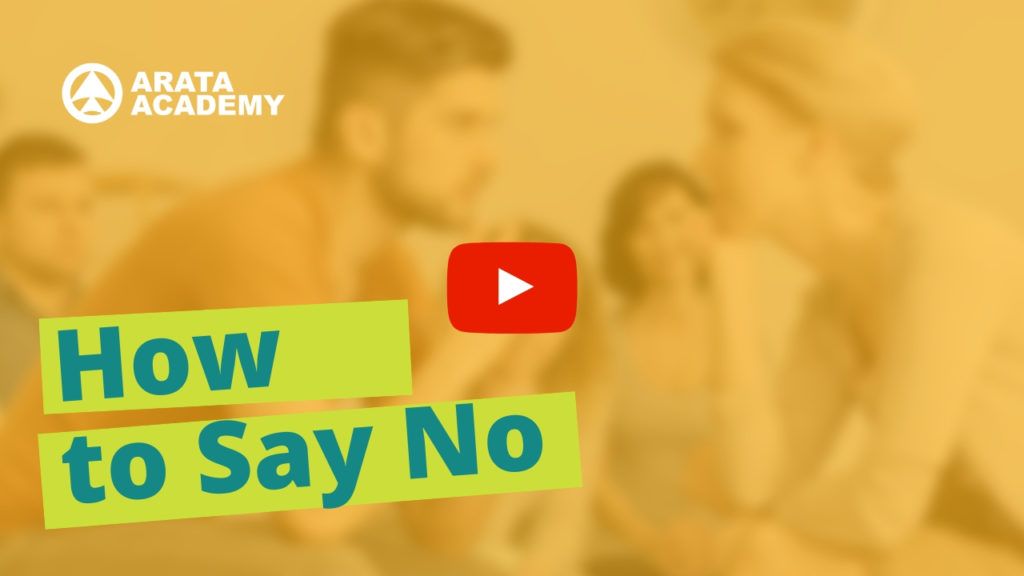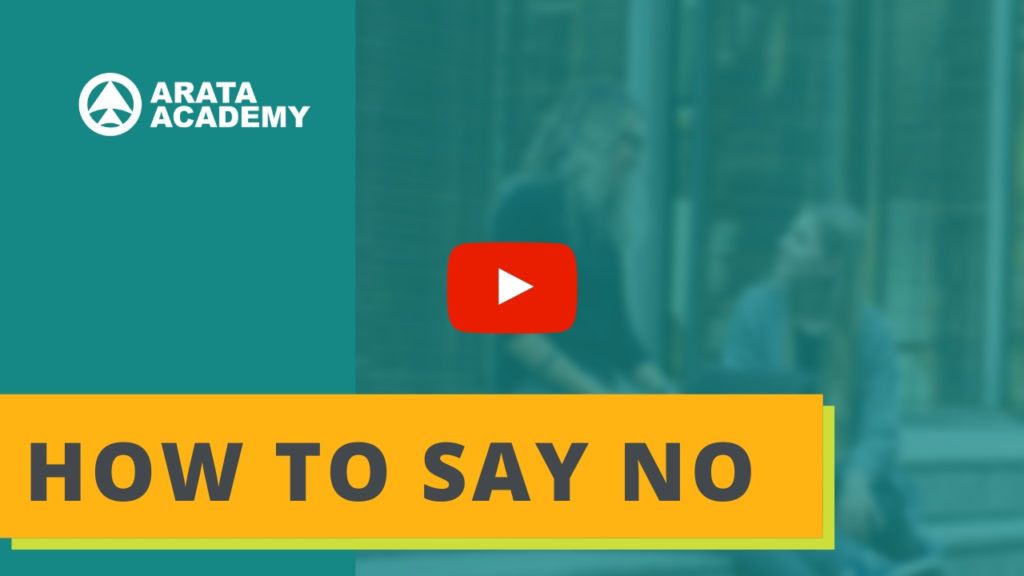Hello! Seiiti Arata. Shall we identify the people who cannot say no? Please leave a comment below the video if you’re the type of person who finds it difficult to say no. This way, our dynamic is similar to those meetings where people introduce themselves and acknowledge their difficulties. This acceptance of the truth is necessary as the first step for change.
If you have no trouble saying no, I recommend that you close this video and watch any other of the dozens of videos that we have in our channel instead. Otherwise, pause and write something like, “Hello, my name is so-and-so, and I have trouble saying no.” If you prefer more privacy you can use pen and paper instead. Whatever you choose, the important is that you write this down.
Ready? Why did we ask you to leave a comment? The reason for this commenting part is related to the famous twelve-step program that is used in different types of recovery processes.
1. You need to recognize the problem to be able to do something about it.
And this is the step of recognizing, admitting that there is a problem that is hurting your quality of life. Only after acknowledging the problem can you go after help.
Unfortunately, many people spend years and years refusing to admit that they have a problem. This was my case: I spent many years of my life without admitting that I found it difficult to express my true desires, and for many years I said yes to everything. In a future video I will tell more about my process of discovery, but today the focus is on you.
2. Identify precisely where the difficulty lies.
Now that you have just acknowledged the problem, pause to identify precisely where you find it difficult to say no.
To answer this question, it helps if you select some specific recent situations where you wanted to say no but just ended up saying yes. What were these episodes? Where in your life do you need to say no more often?
For example, you might have said yes and assumed too many obligations, so you cannot perform everything with quality.
Or maybe you have said yes to attend an event you do not want to go.
The problem is when there is lack of consistency, and you say yes and then end up regretting it—you suffer because you cannot do everything. What other cases are there? Please feel free to use the comments to share examples in which the inability to say no disrupts your life.
3. Understand the importance of saying no.
You must learn to say no when you need to focus on other things that are even more important.
And for that, you need to have clarity about the priorities in your life. You have to know the difference between a mere desire and a real need. Between what is urgent but not important… and what is urgent and important… and what is not urgent but important. And of course, knowing how to eliminate what is neither urgent nor important.
Just think of the consequences of learning to say no. Specifically consider different dimensions of your life and the value of NO to your physical, mental and emotional health.
If you think only of instant gratification, it can be uncomfortable to say no right now. You may have different fears, and saying yes right now may seem easier. That’s why you need to gain understanding and clarity—what are the consequences you will face by saying yes to everything?
4. When you say yes now, you will face the consequences later.
Imagine the problems of saying yes to something you cannot afford to do. Imagine that you say yes and ultimately disappoint people. This can further increase your problems.
Or, if you honour your word, what will be the cost to you? Is it worth all the stress and excessive pressure?
5. You need to say no when you’re short on time.
You need to understand that when you say yes to something, you’re automatically saying no to other things. You should always be able to choose what has greater priority, what has greater value. If you say yes to everything, you will lose focus.
6. You need to learn to say no to be a better person.
Remember these two words: consistency and authenticity. You’re the only person who will know when saying yes or saying no is the right thing to do. And when you do what is right, you value yourself. It is a form of self-mutilation to say things that you do not even agree with.
People around you will also value you more. You will have more credibility by positioning yourself in an honest and sincere way, by doing what is right.
Your no will be respected, and your yes will be valued. People will understand that you do not say yes to everything. You say yes when it really matters.
7. Do not confuse saying no with being impolite.
You can use good communication skills to say no in a polite, kind, and educated way and to show that you respect the other person.
You can visit the http://arata.se/howtosayno link to access a complete training course that allows you respect others and at the same time to set limits, explaining that you have no interest in participating or answering a particular request.
When you stop saying yes to everyone, you will get more time, more energy, more resources and greater capacity to do things that are really important.
By using the word NO, you will arrive at the YES that really matters.
In our How to Say No course, at arata.se/howtosayno, you will develop more genuine and authentic relationships with the people around you. You will learn to say no firmly and gently. They will respect you and your time more, and you will also respect yourself more when you confidently say no, even at the most difficult times.

